In 1998, the fourth meeting of the Conference of the Parties (COP4) established an Ad Hoc Open-ended Inter-sessional Working Group (hereinafter, Working Group) to address the implementation of Article 8 (j) and related provisions of the CBD.
The Working Group is open to all Parties, and indigenous and local communities representatives play a full and active role in its work.
The Working Group has a very broad mandate:
(a) To provide advice as a priority on the application and development of legal and other appropriate forms of protection for the knowledge, innovations and practices of indigenous and local communities embodying traditional lifestyles relevant for the conservation and sustainable use of biological diversity;
(b) To provide the Conference of the Parties with advice relating to the implementation of Article 8(j) and related provisions, in particular on the development and implementation of a programme of work at national and international levels;
(c) To develop a programme of work, based on the structure of the elements in the Madrid report (UNEP/CBD/COP/4/10/Add.1) as set out in the annex to the present decision;
(d) To identify those objectives and activities falling within the scope of the Convention; to recommend priorities taking into account the programme of work of the Conference of the Parties, such as the equitable sharing of benefits; to identify for which work-plan objectives and activities advice should be directed to the Conference of the Parties and which should be directed to the Subsidiary Body on Scientific, Technical and Technological Advice; to recommend which of the work-plan objectives and activities should be referred to other international bodies or processes; to identify opportunities for collaboration and coordination with other international bodies or processes with the aim of fostering synergy and avoiding duplication of work;
(e) To provide advice to the Conference of the Parties on measures to strengthen cooperation at the international level among indigenous and local communities embodying traditional lifestyles relevant to the conservation and sustainable use of biological diversity and make proposals for the strengthening of mechanisms that support such cooperation.
The Working Group has made important contributions to the COP, from its first meeting in 2000 to date. Some of the most important outcomes are the following mechanisms, international instruments and reports:
- The programme of work on Article 8(j) and related provisions (Decision V/16). Its work program was reviewed by Decision X/43;
- The Plan of Action for the retention of traditional knowledge, innovations and practices (refer to decision VII/16, E, Appendix);
- The Akwé: Kon Voluntary Guidelines for the conduct of cultural, environmental and social impact assessments regarding developments proposed to take place on, or which are likely to impact on, sacred sites and on lands and waters traditionally occupied or used by indigenous and local communities;
- The Tkarihwaié:ri Code of Ethical Conduct to ensure respect for the cultural and intellectual heritage of indigenous and local communities;
- The Mo’otz Kuxtal Voluntary Guidelines for the development of mechanisms, legislation or other appropriate initiatives to ensure the “prior and informed consent”, “free, prior and informed consent” or “approval and involvement”, depending on national circumstances, of indigenous peoples and local communities for accessing their knowledge, innovations and practices, for fair and equitable sharing of benefits arising from the use of their knowledge, innovations and practices relevant for the conservation and sustainable use of biological diversity, and for reporting and preventing unlawful appropriation of traditional knowledge;
- Voluntary funding mechanism under the CBD to facilitate the participation of indigenous and local communities in meetings held under the CBD;
- Adopted three indicators for status and trends in TK:
- status and trends of linguistic diversity and numbers of speakers of indigenous languages;
- status and trends in land-use change and land tenure in the traditional territories of indigenous and local communities;
- status and trends in the practice of traditional occupations (decision X/43, paragraph 14);
- Provided input to assist the finalization and adoption of the Nagoya Protocol on Access to Genetic Resources and the Fair and Equitable Sharing of Benefits Arising from their Utilization to the Convention on Biological Diversity;
- Requested Parties to appoint national focal points on Article 8(j) and related provisions;
- Finalized the composite Report on the status and trends regarding the knowledge, innovations and practices of indigenous and local communities relevant to the conservation and sustainable use of biological diversity for several regions including Africa, Arctic, Asia/Australia, Latin America, Central America and the Caribbean, North America, Pacific.
Photo credit: CameliaTWU on Visual Hunt / CC BY-NC-ND
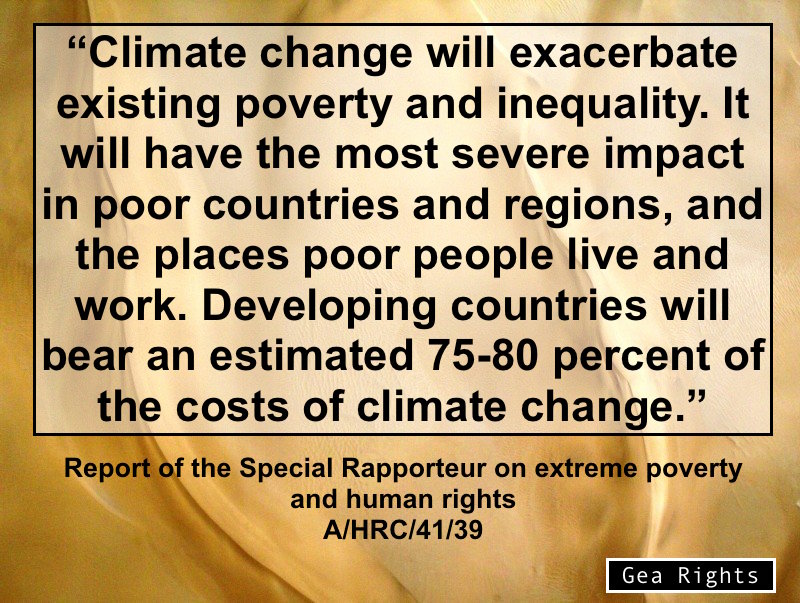
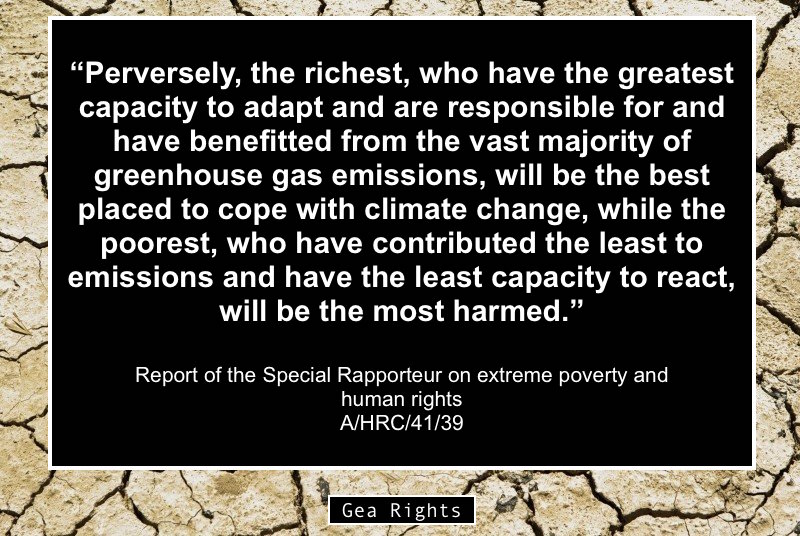
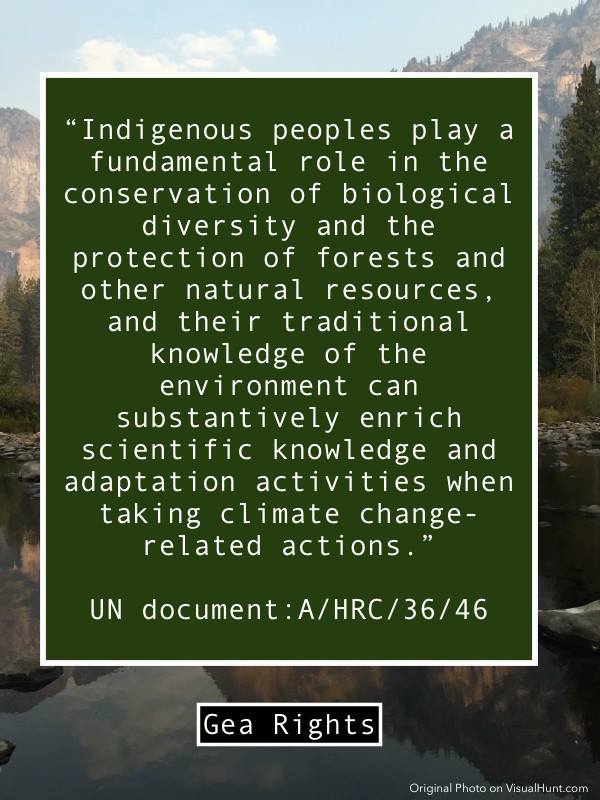
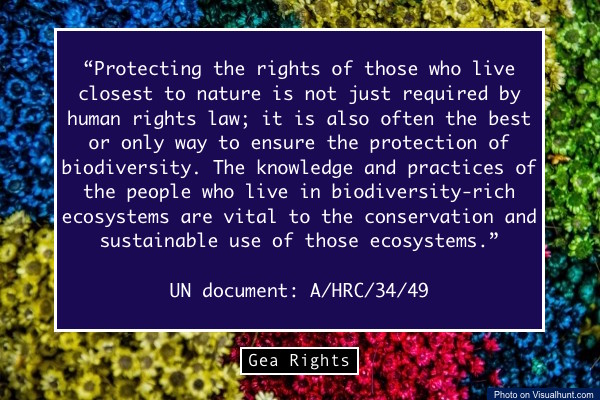
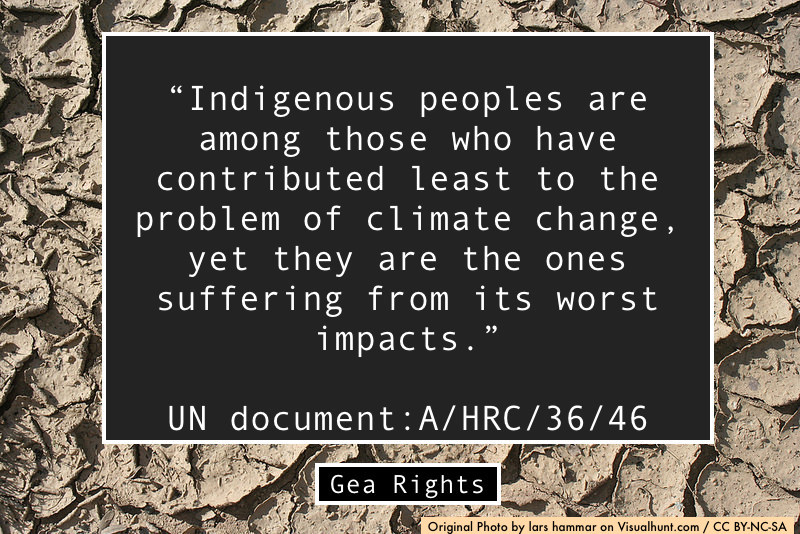
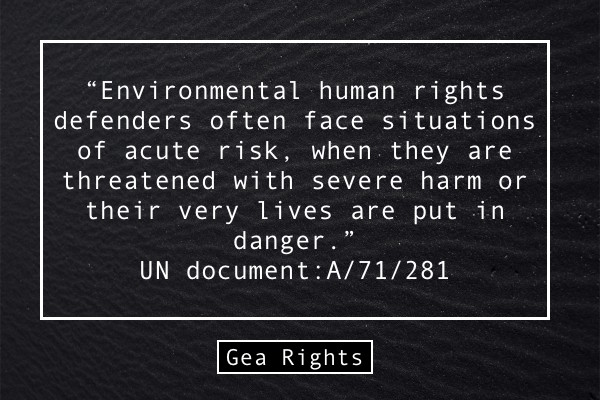
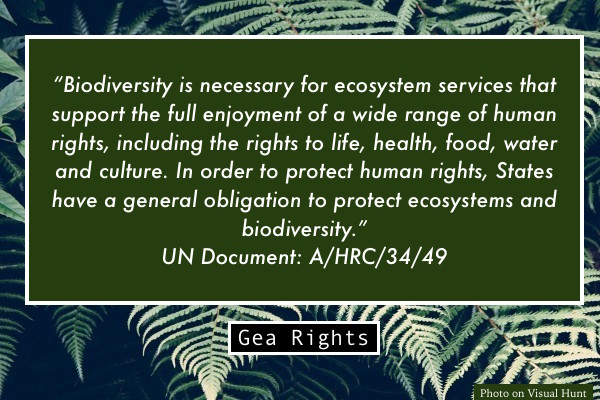
Leave a Reply